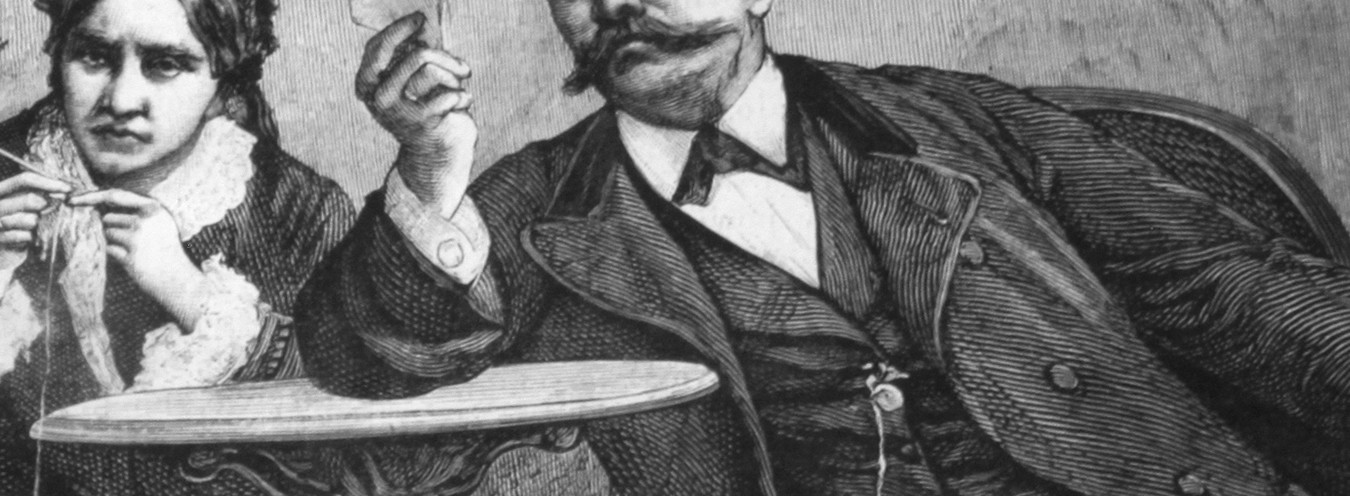
Krzeszowski, Baron
[Baron Krzeszowski] looked like a consumptive whose whiskers and moustache had begun to sprout in his coffin. [He] had a gaping mouth and large eyes behind dark spectacles, from behind which still greater absent-mindedness peered. (80)
Baron Krzeszowski is a typical representative of the aristocracy, or as Julian Ochocki puts it, a class of wealthy people who eat well and do very little. He has a title and a name but no money. Krzeszowski is convinced that an honourable attitude consists primarily in the readiness to take part in duels. He provokes a duel with Wokulski: Surely you don’t expect satisfaction from me? […] In that case, I’m at your service. Trying to rebuild his social relations after the reconciliation with his wife, he announces, if any lady did not return the call, the Baron would require satisfaction from her husband.
Living beyond his means and being incapable of renouncing his habits and vices, Krzeszowski slips into debt: I gambled away half my fortune, ladies of easy virtue devoured the other half. His marriage to a rich burgher does not improve his financial standing. His debts and the parting with his wife additionally tarnish his reputation. Krzeszowski is an aristocrat with bad inclinations. He can be impetuous – he throws gaiters at his valet and offends Izabela. He is also weak in character, which is evidenced by his addiction to gambling and to Mr Maruszewicz, who knows his little sins, eggs him on and maybe even blackmails the baron.
The baron, however, has a great sense of humour, which helps him maintain distance to himself (in the scene of his duel with Wokulski, he refers to himself as an old monkey with the mumps. He is extraordinarily absent-minded – he constantly keeps straightening his dropping spectacles, which apparently seem his only care in life. This eccentric makes many mistakes, but above all he cannot fulfil his role as the head of the family. Prus seems to suggest that his main problem is such a lack of fulfilment as a husband and father, or even as a representative of the aristocracy, who perceive him as a gambler, an absent-minded person, and an idiot. Krzeszowski, an errant husband in need, thanks to the persuasion of the Prince and concern for the honour of [his] name, returns to his wife. He takes control of the apartment house and tries to forget about the past, improving his relations both with the society and with his tenants. Most of all, he gloats over his triumph against his wife: The Baroness wouldn’t dream of deceiving me.
Bibliografia
- Baronowa Staffe, Zwyczaje towarzyskie, Lviv 1898.
- J. Bachórz, Introduction to B. Prus, Lalka, BN I 262, Wrocław 1991, 1998.
- E. Paczoska, Powieść realistyczna jako źródło do badania obyczajów. Przypadek Wokulskiego, in Jak badać obyczaje?, ed. M. Szpakowska, Warsaw 2007.



